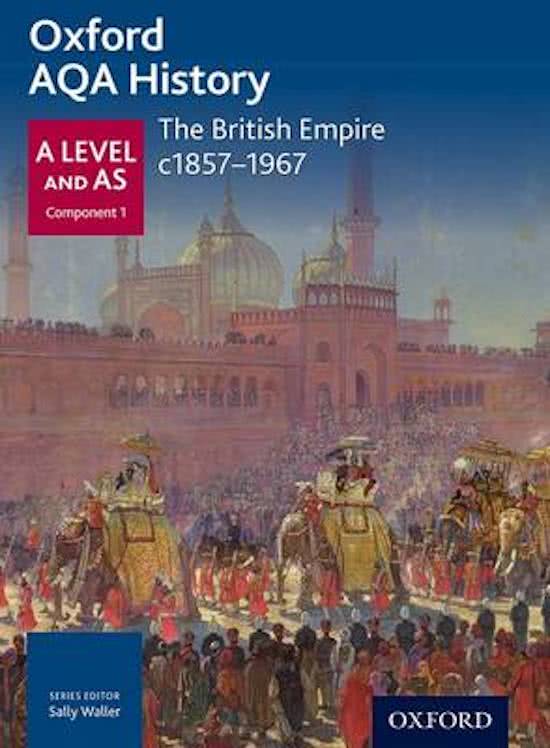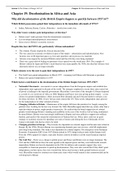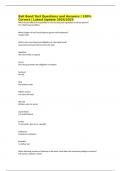Chapter 19: Decolonisation in Africa and Asia
Why did decolonisation of the British Empire happen so quickly between 1957-67?
Which British possessions gained their independence in the immediate aftermath of WW2?
• Indian, Pakistan, Burma, Ceylon, (Palestine) – mostly from south Asia
Why didn’t more colonies gain independence at this time?
• Britain wasn’t under pressure from the international community
• Less developed national/political consciousness
• Seen as key to Britain’s economic recovery
Despite this, how did WW2 stir, particularly African nationalism?
• The Atlantic Charter inspired the African educated elite
• The war caused an economic revolution in parts of the empire – urbanisation and industrialisation. New
factories rose to fill important gaps (e.g. beer and cigarettes) and to process raw materials
• Africans were angered by increased British control and they felt they were being explained
• There was a great shift of feeling on questions of race spread over the world after 1945. The example of
Britain’s defeat by Japan and Hitler’s racial theories were unacceptable. By 1950s, the idea that Africans were
inherently inferior was no longer tolerable
Which colonies were the next to gain their independence in 1957?
• The Gold Coast gained independence in March 1957 – renaming itself Ghana with Nkrumah as president
• Malaya also gained independence in 1957
Which factors contributed to the decolonisation of the British Empire between 1957-1967?
• Nationalist Movements – movements to secure independence from the European empires and establish free
independent states appeared in all parts of the world. The strategies employed to secure these aims varied, but
all posed a challenge to the imperial governments. Macmillan’s conviction of the strength of African deepened
as a result of a six week tour of Africa in 1960. Belgium and France were also giving up their empire – as one
colony was granted independence, others increased their demands and and it became harder to sustain a case
for delay elsewhere. In 1960, 16 new African states entered the UN. These newly independent states pressed
for the independence for other colonial territories
• Changing Attitudes in Britain – Maintenance of the empire fell down the priorities list. Largely among the
political class. Looking for the best way forward. By 1960, Macmillan appreciated that any action, other than a
rapid devolution of power, might produce insurrection . He realised that the brutal suppression of colonial
peoples would damage Britain’s standing and credibility in the eyes of the world as well as being condemned
by many Britons. Briotns were increasingly indifferent to Empire and were unlikely to support new military
burdens, particually if this meant the reintroduction of National Service. Policy akers could see no good
strategic or economic reasons for spending vase sums of money and risking the loss of thousands of lives
trying to rul people who had no wish to be ruled
• Changing priorities in Europe – They became less dependent on colonial support and became more reliant in
Europe. By the 1950s, Western Europe was experiencing dramatic post-war recovery, with full employment
and rising living standards. This made it less dependent on colonial support. The emergence of the European
Economic Community (EEC) from 1957 (Britain joined in 1973) helped refocus trade within Europe itself.
From the 1950s support for empire, especially business interest dwindles in all the main European imperial
powers.
• The Cold War – There was a change in global power and France and Britain were no longer dominant. The
USA and the USSR did not have the same agenda as the imperial power and they were both hostile towards
imperialism. Britain was heavily dependent on the USA for defence and economic support, they were
susceptible to American pressures to speed up decolonisation. They were also worried that if they didn’t grant
independence on their terms, they were worried that Africa may become a battle ground between east and
west. Macmillan wanted to construct new democratic states which would remain in the commonwealth and be
well disposed to Britain






